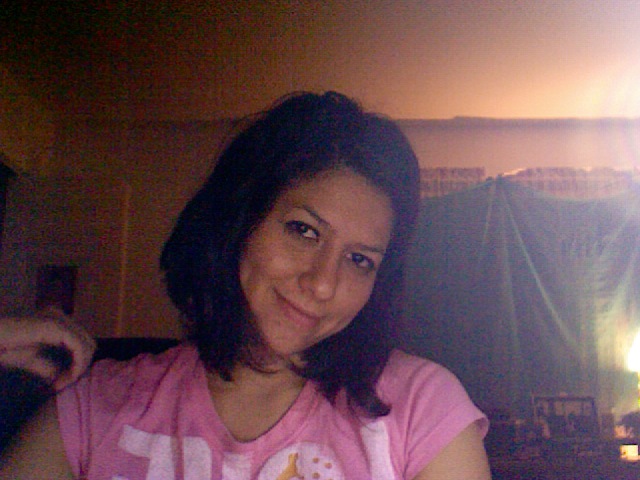The BBC’s special wildlife series Planet Earth takes hightech cameras and video equipment into the great outdoors on a mission to film this planet’s “greatest natural spectacles.” The radiant landscapes and vibrant wildlife are breathtakingly captured for the marvel of us, the human spectators residing in the “developed” world. The narrator David Attenborough, informs the audience of what is being presented through the footage of the screen. The style of narration, aptly described as the voice-of-God technique in documentary making, suggests the narrator is stating absolute fact, scientifically concluded through the study of biologists and other qualified academics. This is problematic for many reasons, beginning with the context of colonization in which the filming project treats native peoples as non-existant within the geographical places they reside and concluding towards the objectivity of the videomakers (white, high/middle class, British men) to rationally name, describe, and classify natural phenomenon as truth. I’ll delve onto a few examples to make a stronger case that Planet Earth fails to escape or quell the hegemonic and patriarchal traditions of its creators.
In the Episode, “Jungles” the captive explorer (sitting comfortably in front of her/his monitor screen) is helicopter flown through the foggy clouds across the sky towards the density of the lush forest. Attenborough informs us that we are in Papua, New Guinea on the quest for the male Blue Bird of Paradise’s courtship dance. The language the narrator uses to explain the bird’s ritual is blatantly gendered through contemporary social standards of masculinity and femininity. The male is actively displaying his virility to a potential female mate that watches passively. She, the “picky”/ “choosey” female, can either accept his request or deny him based on appearance. Other examples of such male-centric descriptions of ‘natural’ animal behavior abound.
At the Amazon Rainforest, we are priviledged to observe the bright green, Gliding Leaf Frogs copulating on the dewy leaves overhanging the ground. Attenborough again attributes socially constructed gender categories onto the frogs as if the behavior was determined by biological forces devoid of human biases. The females are occassionaly forced to accept ‘sneaky interceptions’ by younger males wanting to beat the older males in the race to mate. The insensitivity applied towards female sexuality of any species can be seen as symptomatic of the filmmakers upbringing in a male priviledged society, not as naturally occuring.
Last but not least, in the Congo we are to find a large group of Chimpanzees carefully stalking another group. Attenborough tells us a territorial dispute is transpiring. He alerts us that a female Chimpanzee has been cornered by three rival males and that she is lucky to escape with her life. The mother has lost her infant to the attackers and it’s tiny body is cannibalized. Attenborough acknowledges the uncertainty of explaining why the Chimpanzees acted this way, but nevertheless, the spectator is left to wonder if sexist territorial aggression is justified in the nature of our closest primate relative.
The gender biases and the colonizer’s perspective masquerading as objective are two outright troubles recorded within the Western’s scientific traditions by scores of Feminists, Critical Race theorists, and social activists. Technoscience Feminist Donna Haraway aptly describes one case study examining how biology textbooks have historically reflected the social perspective of the Western world as legitimated through a command of scientific knowledge grounded in the observation nature. Haraway unravels how
"Sociologist Eric Engels examined a large body of pre-World War II U.S. biology texts and educators writings. Content with the great divide between nature and culture, biology textbooks tend to explain the ‘social’ in terms of the ‘natural.’ Biology texts, in educating ‘adolescents’…about the living world ‘constructed that world in particular ways generally consistent with commodification, capital accumulation, the bureaucratization of society, the strenthening of professional and technocratic authority, the marginalization of people of color and women, and the priviledging of heterosexuality and the nuclear family.” (Engels, 1991)
Some of the same problems persistent for Engels’ study are prevalent in the work of the Planet Earth series. In New Guinea, the Huli people are totally ignored, only to be shown at the end of the episode under the title Planet Earth Diaries, as extras living one step above the hunter-gatherer phase of “development.” This relegation of the people into the margins denies them their expertise of the land and the wildlife.
Haraway provides another example to explain how she formulated her critical awareness about the unobjectivity of science when she was teaching biology and the history of science at the University of Hawaii. She writes of her experience,
Without for a minute giving up our commitments to biology as knowledge, many of us [professors and students] left that period of activism and teaching committed to understanding the historical specificity and conditions of solidity of what counts as nature, for whom, and at what cost.”
Haraway is wise to remind us that the power to name nature is not genderblind or colorblind. Nature is a socially determined category, just like civilization, technology, and science.
Haraway, Donna. Modest Witness@Second Millennium.FemaleMan Meets OncoMouse, 1997. 103
Haraway, Donna. Modest Witness@Second Millennium.FemaleMan Meets OncoMouse, 1997. 104

No comments:
Post a Comment